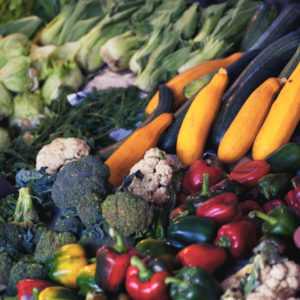We’ve seen headlines proclaiming — ‘Butter is back’, ‘Bacon for breakfast again’, ‘Cook with coconut oil’, ‘Vegetable oils are toxic’, ‘Olive oil not suitable for cooking’.
All false. Some are based on dubious reviews of scientific papers claiming there’s little relationship between saturated fat and heart disease deaths. These results are based on asking people how often they eat a limited list of about 120 foods. That might have been useful in the 1960s when Australians had 600-800 foods available, but can’t give accurate data now when an average supermarket stocks around 30,000 different foods.
‘Meta-analyses’ can also be faulty. For example, one much quoted review claiming saturated fat wasn’t a problem omitted a lot of studies. A review of this study also found the authors didn’t report the findings accurately. However, it made good headlines!
I can’t find a single study showing that butter or bacon are good for you. Yoghurt, cheese and milk – yes. Butter – no.
Studies showing benefit for coconut oil also need close examination. One frequently quoted study in two Pacific Island groups was done in the 1960s (published in 1981). Coconuts were the major source of fat (as coconut, not jars of solid coconut oil) with fish, octopus, taro or breadfruit and bananas making up the rest of their diets. They ate few processed foods of any kind and the people were physically active enough to avoid the obesity that plagues those on the same islands today – even though they continue to use coconut products.
Many people also fail to understand the type of fatty acids in coconut. The major one – lauric acid – can be included in the category of ‘medium chain fatty acids”. Note, however, that lauric acid is not equivalent to medium chain triglycerides (MCT) which are manufactured in laboratories. These contain mainly capric and caprylic acids – not lauric acid. MCT oils have been developed for use in intravenous feedings. Unlike coconut fat, MCT oil is water soluble. MCT oil can be taken in small quantities by mouth, but larger quantities can produce side effects including diarrhoea, vomiting, nausea and stomach discomfort. Studies which use MCT oils cannot be assumed to apply to coconut oil.
A study comparing coconut oil, sunflower oil, and butter found that the coconut oil had slightly better effects on blood fats than butter but neither of these fats came even close to the beneficial effects of sunflower oil.
Cooking with fats
Claims that olive oil can’t be used in cooking ignore the fact that it was used from 579 BC in Mediterranean countries, poured over food but also for frying. Extra virgin olive oil has a relatively high smoke point (210°C) and is fine, albeit expensive for use in cooking.
Conclusion: Foods high in saturated fat – like fatty meats, butter, too much margarine, coconut oil and oils that have been partially or fully hydrogenated for use in processed foods and commercial frying are best limited. Extra virgin olive oil is the healthiest oil, with its benefits supported in many published studies.
About the Author – Dr Rosemary Stanton OAM BSc, C Nutr/Diet, PhD (Hon), Grad Dip Admin
Dr Rosemary Stanton is Australia’s best-known independent public health nutritionist with a Science Degree in Biochemistry and Pharmaceutical chemistry, post-graduate qualifications in Nutrition and Dietetics. She is welcomed by radio, print and television shows for her evidence-based views that are free of any commercial content. Rosemary served as key advisor to the Vitamania team on the public health messaging around nutrition and vitamins.


